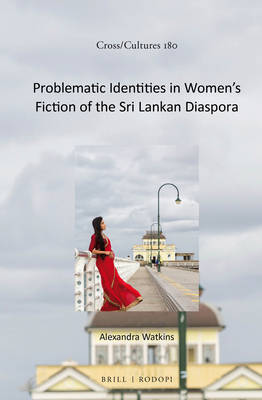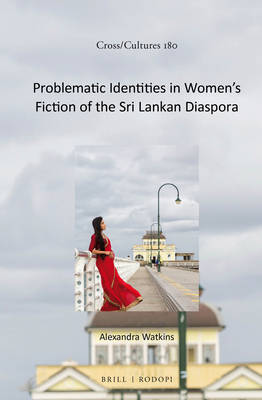
- Afhalen na 1 uur in een winkel met voorraad
- Gratis thuislevering in België vanaf € 30
- Ruim aanbod met 7 miljoen producten
- Afhalen na 1 uur in een winkel met voorraad
- Gratis thuislevering in België vanaf € 30
- Ruim aanbod met 7 miljoen producten
Zoeken
Problematic Identities in Women's Fiction of the Sri Lankan Diaspora
Alexandra Watkins
€ 116,45
+ 232 punten
Omschrijving
Women novelists of the Sri Lankan diaspora make a significant contribution to the field of South Asian postcolonial studies. Their writing is critical and subversive, particularly concerned as it is with the problematic of identity. This book engages in insightful readings of nine novels by women writers of the Sri Lankan diaspora: Michelle de Kretser's The Hamilton Case (2003); Yasmine Gooneratne's A Change of Skies (1991), The Pleasures of Conquest (1996), and The Sweet and Simple Kind (2006); Chandani Lokugé's If the Moon Smiled (2000) and Turtle Nest (2003); Karen Roberts's July (2001); Roma Tearne's Mosquito (2007); and V.V. Ganeshananthan's Love Marriage (2008). These texts are set in Sri Lanka but also in contemporary Australia, England, Italy, Canada, and North America. They depict British colonialism, the Tamil-Sinhalese conflict, neocolonial touristic predation, and the double-consciousness of diaspora. Despite these different settings and preoccupations, however, this body of work reveals a consistent and vital concern with identity, as notably gendered and expressed through resonant images of mourning, melancholia, and other forms of psychic disturbance. This is a groundbreaking study of a neglected but powerful body of postcolonial fiction.
"This is an excellent study that I believe makes a significant and timely contribution to the fields of postcolonial literature, Sri Lankan anglophone literature, diasporic literature, women's studies, and world literature. It was a stimulating and thought-provoking read." Dr Maryse Jayasuriya, The University of Texas at El Paso.
"This is an excellent study that I believe makes a significant and timely contribution to the fields of postcolonial literature, Sri Lankan anglophone literature, diasporic literature, women's studies, and world literature. It was a stimulating and thought-provoking read." Dr Maryse Jayasuriya, The University of Texas at El Paso.
Specificaties
Betrokkenen
- Auteur(s):
- Uitgeverij:
Inhoud
- Aantal bladzijden:
- 244
- Taal:
- Engels
- Reeks:
- Reeksnummer:
- nr. 180
Eigenschappen
- Productcode (EAN):
- 9789004299252
- Verschijningsdatum:
- 5/06/2015
- Uitvoering:
- Hardcover
- Formaat:
- Genaaid
- Afmetingen:
- 157 mm x 241 mm
- Gewicht:
- 680 g

Alleen bij Standaard Boekhandel
+ 232 punten op je klantenkaart van Standaard Boekhandel
Beoordelingen
We publiceren alleen reviews die voldoen aan de voorwaarden voor reviews. Bekijk onze voorwaarden voor reviews.











